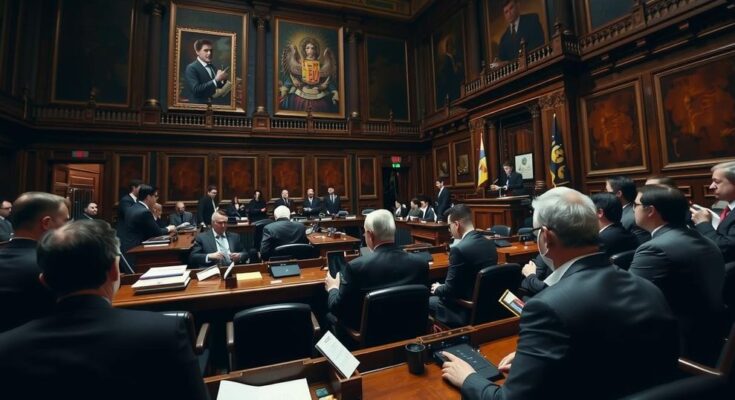Romania’s high court orders a recount of the presidential election held on November 24 after a challenge from candidate Cristian Terhes. Calin Georgescu’s victory raises questions regarding vote integrity, while social media influences the campaign landscape. Further elections are scheduled, emphasizing the critical political moment for Romania.
Romania’s highest court has mandated a recount of votes from the first round of the presidential election held on November 24, a decision that has raised concerns regarding the integrity of state institutions as the nation prepares for additional electoral events. The ruling from the Court requires a verification and recount of all ballots, following a challenge issued by conservative candidate Cristian Terhes, who secured only 1% of the vote but has called for the annulment of the election results.
Calin Georgescu emerged unexpectedly successful in the elections, having initially polled in single digits prior to the vote, leading to scrutiny regarding his rapid rise in a member state of both the European Union and NATO. Georgescu is set to face Elena Lasconi, a centrist candidate, in a crucial run-off scheduled for December 8. Concurrent parliamentary elections are also on the horizon for the following Sunday.
Georgescu’s ascendance appears to have garnered significant support from young voters and the Romanian diaspora, driven in part by a campaign heavily utilizing the social media platform TikTok. In contrast, Social Democrat Prime Minister Marcel Ciolacu secured third place in the presidential contest, finishing slightly behind Lasconi. The current situation complicates the electoral landscape, highlighting the delicate balance of power and public sentiment in a nation that has historically been a pro-Western ally.
The security implications of social media engagement in elections have been recognized, with Romania’s top security authority meeting to scrutinize potential national threats linked to cyber activities. The outcome of the recount is anticipated to unfold in the coming days as officials from the electoral authority prepare to act upon the Court’s directive. The political repercussions of this ruling will be pivotal for Romania’s future trajectory as it faces crucial decisions in upcoming votes.
Romania has been navigating a complex political landscape marked by recent electoral events that impact its future direction. The presidential election on November 24 has drawn attention not only for the unexpected victory of Calin Georgescu, an independent far-right candidate, but also for the subsequent controversy surrounding vote counting and allegations of electoral misconduct. The involvement of social media, particularly TikTok, in shaping voter preferences has further underscored the evolving nature of political campaigns and voter engagement. As Romania prepares for additional elections, including parliamentary votes, the integrity of its electoral processes remains under intense scrutiny, particularly given the historical significance of such pivotal moments in shaping the nation’s political alignment, especially towards Western alliances and relations with Russia.
The recent decision by Romania’s top court to recount the votes from the initial round of its presidential election has sparked significant debate over the public’s trust in institutions and the conduct of electoral processes. Calin Georgescu’s unexpected victory indicates shifting political dynamics within Romania, particularly as the nation gears up for a crucial run-off election against Elena Lasconi and simultaneous parliamentary contests. The unfolding events will undoubtedly affect the political climate in Romania, emphasizing the importance of electoral integrity in a country at a crossroads between traditional alliances and emerging political influences.
Original Source: www.cnn.com




